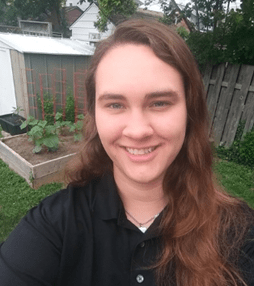As part of our broader spotlight series — where we highlight the amazing people involved in collegiate recovery from students to staff — we are now featuring the profiles of our fellows. Read more about their area of study, how they got involved with ARHE and their role, and find out their vision for the future of the field. Plus more.
This week’s feature is ARHE Conference Fellow, Meagan Park.
Name: Meagan Park
Pronouns: They/them
Institution: University of Windsor
Area of Study: Psychology major; minors in Sociology, Applied Information Technology, and Business Administration
Dream Job: Tentatively, a clinical psychologist, but I’m open to where the universe guides me
ARHE Position: 2020-2021 Conference Fellow
What have you enjoyed about your ARHE fellowship so far?
The fellowship not only offers an opportunity to learn a lot and network with some amazing people, but it also allows me to contribute and give back to a field which has significantly impacted my life. The fellowship has a good balance of structure and guidance while also encouraging autonomy and innovation. Most importantly though, the human side of the job is never forgotten, even in an all-virtual world.
What are you hoping to work on for ARHE or the collegiate recovery field?
My position is focused on helping with the conference, so I hope to help make this year’s second virtual conference as successful as possible. Beyond that, I’m helping to update the website and support the technology-specific aspects of a few different projects that are going on.
Are there changes you would like to see in the collegiate recovery field overall?
While I’m sure there are always things to improve upon, I am beyond impressed with the work being done in the collegiate recovery field already and, more importantly, the constant drive to do better. The only thing that really stands out to me, as a Canadian, is the lack of collegiate recovery programs across Canada or other countries. The field is slowly expanding, but would do well to have closer partnerships with international recovery organizations and to gain greater traction with institutions in other countries.
Do you have any words of advice for students in recovery?
Be kind to yourself, especially as we continue to navigate a pandemic world together. You are enough.

